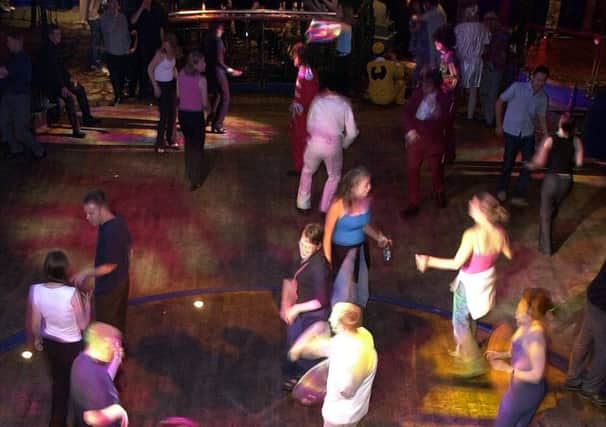Spare a thought for sober victims


THE Christmas lights have been switched on, seasonal songs are blasting from shops and the warm glow begins to spread. Many people will be looking forward to stepping off the treadmill and spending some time with family and friends.
But for some people, the festive period is the time of year that they fear the most. People living with a problem drinker dread the additional pressure the festivities bring. People in recovery from alcohol dependence know their resolve will be severely tested over the holidays as everyone is encouraged to “raise a glass”. Parents will worry more than usual about what teenagers are getting up to. And the people in our frontline services who deal with the damage that alcohol causes on a daily basis will be gearing up for their busiest time of the year.
One in two Scots affected by other people’s drinking
Advertisement
Hide AdAdvertisement
Hide AdWhen we think of the harm alcohol causes, we often think only of the drinker and the harm they are causing to themselves, but new research published by Alcohol Focus Scotland shows just how far-reaching alcohol harm is. We found one in two Scots are affected in some way by other people’s drinking, and one in three report having a heavy drinker in their lives. We also found that experiencing harm from other people’s drinking is not related to whether the person affected by the harm drinks or not.
We spoke to frontline practitioners who painted a devastating picture of how alcohol harm ripples through families, workplaces and neighbourhoods. A youth worker talked about how the young people she worked with worry about how to manage their family during the Christmas holidays. One teenager said: “Don’t know how I’ll get through the holidays. I know they’ll get in a bad state. They’ll bring up such and such as they always do when they’re drunk.”
A police officer spoke about neighbours being put under stress by someone who has had too much to drink – a drunk person can’t get their key in the lock so they buzz every flat or bang on doors. This can be particularly distressing for older people at home minding their own business who are disturbed by someone who has been drinking.
People can struggle to get up for work as they’ve had to endure music, shouting and partying through the night. The widespread negative effects of drinking on others are not always talked about when we discuss alcohol in Scotland.
This could be because we have become tolerant of both excessive drinking and the harms it causes, or because much of the harm happens behind closed doors, or simply because no-one asks the right questions.
But if we take into account the impact of alcohol harm on people other than the drinker, the cost of our drinking increases dramatically.
The support they deserve.
It’s time we started thinking seriously about the harm that extends beyond the individual drinker to those around them. Partners, families, workplaces and communities who are being negatively affected by other people’s drinking should receive the support they deserve.
Employers should implement workplace alcohol policies which outline support structures for dealing with alcohol problems, while employees should have information and training on their responsibilities around alcohol in the workplace. Local authorities can ensure licensing decisions reflect local concerns by making the licensing process more accessible to community members. Clear mechanisms for reporting incidents relating to other people’s drinking should be established and promoted.
Advertisement
Hide AdAdvertisement
Hide AdWhen alcohol service providers are supporting someone with an alcohol problem, they need to ask questions about how their family is affected and ensure the necessary support is put in place for them. Everyone working with children should be trained to identify and support children at risk of alcohol harm.
But our aim should be to prevent alcohol harm from happening in the first place. To do this, we need to prevent cheap alcohol from being so widely available and so heavily promoted. A minimum price of 50p per unit will cut hospital admissions, cut crime and save lives. Reducing overall alcohol consumption in Scotland won’t just improve the health of those drinking too much, it will improve daily life for all of us and protect those who are most vulnerable. When people began to understand the negative effects of passive smoking and realised that it didn’t have to be tolerated, action was taken. It’s now time for action to better protect people from the second-hand effects of drinking.
• Dr Evelyn Gillan is chief executive of Alcohol Focus Scotland www.alcohol-focus-scotland.org.uk
SEE ALSO